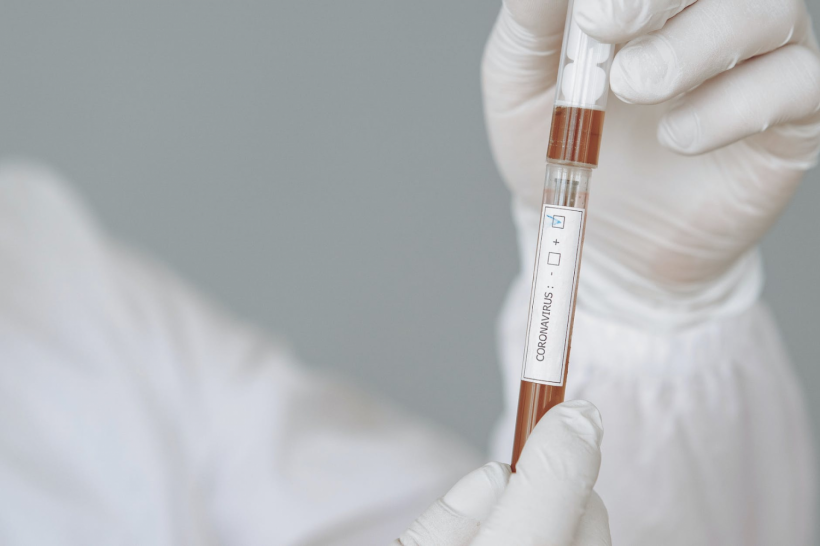How To Avoid COVID-19 Testing Scams

As the entire world continues its fight to stop the spread of the novel coronavirus, more and more people are struggling to find reliable information about the disease. Many also want to know how they can get tested, protect themselves, and more, and find it hard to do so.
Sadly, scammers are using the pandemic to benefit from other people, wherein most of them might be susceptible to their wicked efforts than ever before. Many government agencies and non-government organizations are intervening to combat these scam artists and protect people's safety.
There are steps that you can take to avoid getting yourself scammed from these criminals. The most important thing, however, is being smart and being two steps ahead of these con artists.
Fake Coronavirus Tests
The scam works by calling or directing the consumers to a website that looks like a legitimate medical or clinic supply company providing a coronavirus test kit. These tests can presumably determine if you have been infected with the virus, even if after recovering from the disease.
Moreover, some companies promise that these kits can deliver results in less than ten minutes. All you have to do is to fill in a form and type in your credit card details. In some instances, the tests are offered through a clinic, and other times, the test includes an at-home testing kit.
However, the company selling these kits lack in detail and are not willing to hand out information regarding the COVID-19 test kits they are selling. Be warned. Do not fall for it because these alleged test kits aren't FDA-approved.
You can avoid these scams by:
-
Consult with a licensed doctor. If you want an antibody test performed on you, go to your nearest healthcare provider. These healthcare professionals can help you determine where to look for a legitimate clinic and if the test can be covered by insurance.
-
Do thorough research. Fraudsters put lots of pressure on people to buy from them without allowing them to research. That said, to avoid fake tests, research all the claims and promises the company makes. Know if the company is BBB Accredited, have no complaints, and has good reviews.
-
Know your options. A detailed guide to testing for the virus can be found on the official website of the Center for Disease Control and Prevention. Be aware of the various tests accessible and what you might need.
-
Be on the lookout for scam texts and emails. In recent years, phishing schemes have become sophisticated. It can even include email addresses or official imagery that look like email addresses by accredited businesses. Texts and phone calls from fraudsters pretending to be trustworthy businesses might have your information, like your phone number or name, to convince you that they are legitimate.
You Can't Buy A Cure Yet
Fraudsters are always on the lookout for an opportunity to steal your personal information and money. What's more, the ongoing COVID-19 pandemic is providing them the perfect chance to try and find victims.
The Federal Bureau of Investigation warns that there are a few emerging fraud schemes wherein scammers attempt to play on your fears. COVID-19 treatment and testing are two areas the FBI is seeing scam artists at work.
Most COVID-19 scams include attempts by either individuals or companies to market products and insist it can cure or prevent the virus that killed nearly 500,000 people worldwide. Scammers sell fake remedies ranging from cow manure to colloidal silver. They randomly reach out to people to sell supplies or test kits.
However, the novel coronavirus is entirely new, meaning there's no cure or vaccine for it yet. Vaccine trials are in progress, but any measurable results are still a few months away. That said, do not believe anyone who emails or calls you selling a treatment plan.
The good news is, governments in different countries are trying to combat these scammers' MO. For instance, in the US, the Food and Drug Administration (FDA) and Federal Trade Commission (FTC) recently released warnings to seven companies after advertising products with unsupported claims.
If the companies continue to engage in false promotions, the FTC can get a federal court injunction and grant an order requiring consumer refunds. According to FDA Commissioner Stephen M. Hahn, the promotion and sale of fake COVID-19 products are a threat to the health and safety of the public.
If people purchase these fraudulent products and commodities in hopes that they'll prevent someone from getting infected, it could motivate them to disobey social distancing regulations.
Besides, the public has many different ways to get free testing for COVID-19. Private clinics and country health departments also offer it. These institutions are recommended and reliable places to get a COVID-19 test.
Takeaway
Protecting yourself from COVID-19 testing scams takes a dose of skepticism and prep work. The FTC encourages the public to practice adequate online security to make it challenging for fraudsters to access personal information. Else, scammers will benefit from your money and information because these criminals will prey and steal even during this crisis.
Subscribe to Latin Post!
Sign up for our free newsletter for the Latest coverage!











